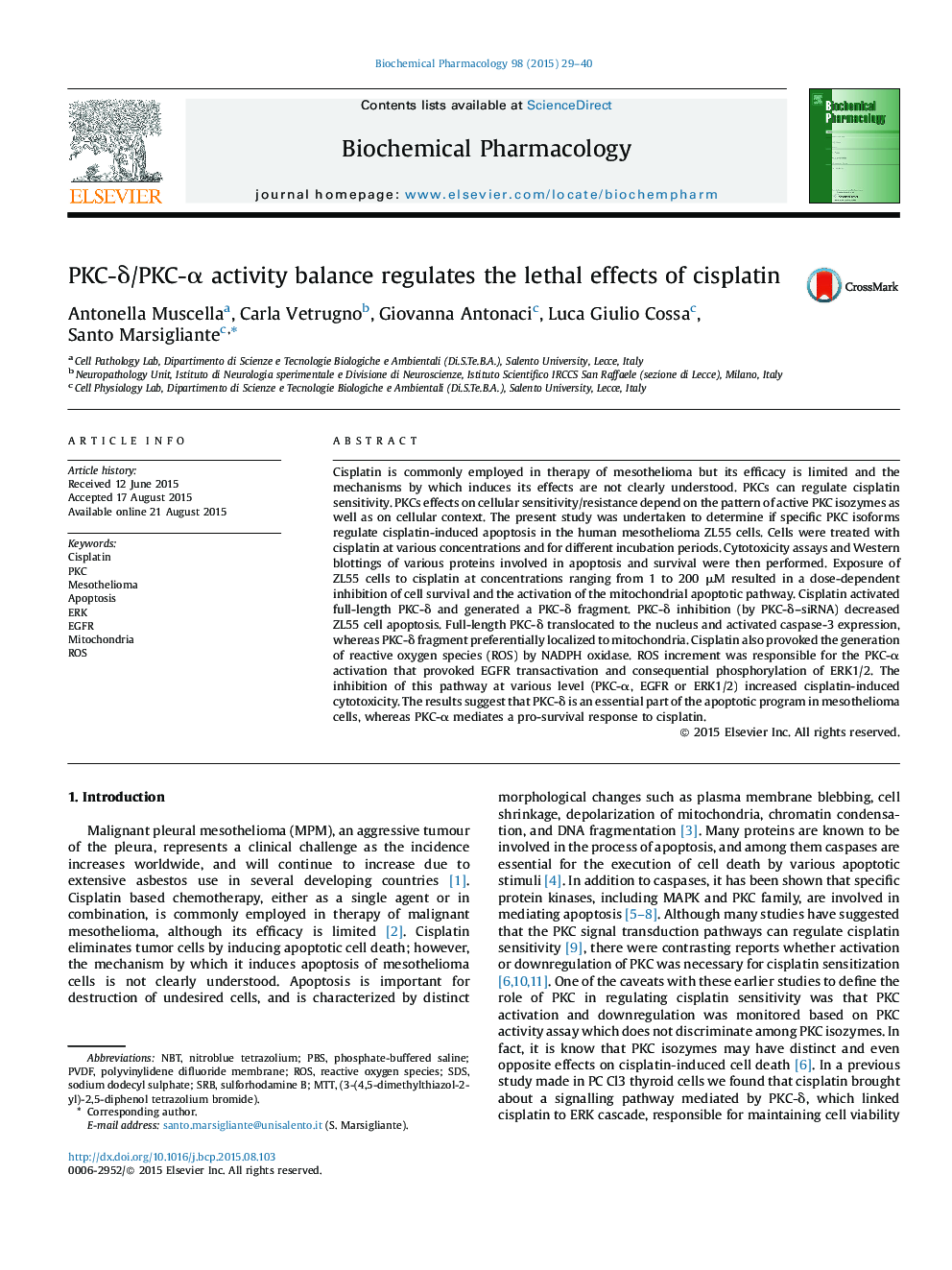| Article ID | Journal | Published Year | Pages | File Type |
|---|---|---|---|---|
| 2511938 | Biochemical Pharmacology | 2015 | 12 Pages |
Cisplatin is commonly employed in therapy of mesothelioma but its efficacy is limited and the mechanisms by which induces its effects are not clearly understood. PKCs can regulate cisplatin sensitivity. PKCs effects on cellular sensitivity/resistance depend on the pattern of active PKC isozymes as well as on cellular context. The present study was undertaken to determine if specific PKC isoforms regulate cisplatin-induced apoptosis in the human mesothelioma ZL55 cells. Cells were treated with cisplatin at various concentrations and for different incubation periods. Cytotoxicity assays and Western blottings of various proteins involved in apoptosis and survival were then performed. Exposure of ZL55 cells to cisplatin at concentrations ranging from 1 to 200 μM resulted in a dose-dependent inhibition of cell survival and the activation of the mitochondrial apoptotic pathway. Cisplatin activated full-length PKC-δ and generated a PKC-δ fragment. PKC-δ inhibition (by PKC-δ–siRNA) decreased ZL55 cell apoptosis. Full-length PKC-δ translocated to the nucleus and activated caspase-3 expression, whereas PKC-δ fragment preferentially localized to mitochondria. Cisplatin also provoked the generation of reactive oxygen species (ROS) by NADPH oxidase. ROS increment was responsible for the PKC-α activation that provoked EGFR transactivation and consequential phosphorylation of ERK1/2. The inhibition of this pathway at various level (PKC-α, EGFR or ERK1/2) increased cisplatin-induced cytotoxicity. The results suggest that PKC-δ is an essential part of the apoptotic program in mesothelioma cells, whereas PKC-α mediates a pro-survival response to cisplatin.
Graphical abstractFigure optionsDownload full-size imageDownload as PowerPoint slide
